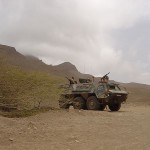NATO presence in Afghanistan to be scaled back
Members of the North Atlantic Treaty Organization or NATO announced after a meeting in Lisbon that it will be slowly pulling out the majority of its 150,000-strong military force in four years even though the capability of Afghan troops may not be fully ready to secure the country by that time.
The departure of NATO is seen as an acknowledgement of the failure of the Americans and their allies in stabilizing the country after several years of military presence. But member countries nevertheless reaffirmed their commitment to the defense alliance by crafting a fresh vision statement for the next decade, highlighting the perceived necessity for future collaboration in global security affairs.
NATO officials will devise a timetable for turning over key responsibilities to Afghan security personnel in 2011 and total security control over the whole Afghanistan by the end of 2014. Troops of NATO will be transitioning to support and train Afghan forces until the full pull-out. But NATO said that the 2014 deadline may be pushed back if security has not improved by then. The war-ravaged country may still experience “eye-watering levels of violence by Western standards” by that time, according to Mark Sedwill, senior civilian representative of NATO in Kabul.
Britain said it still plans to pull its troops by 2015. Speaking before a parliamentary panel, Prime Minister David Cameron said British forces have “made a massive contribution, made massive sacrifices.” Cameron said that the government owes the people a commitment to end their involvement in Afghanistan. “I think the British public deserve to know there is an end point to all this, it is 2015, and that’s clear.”
